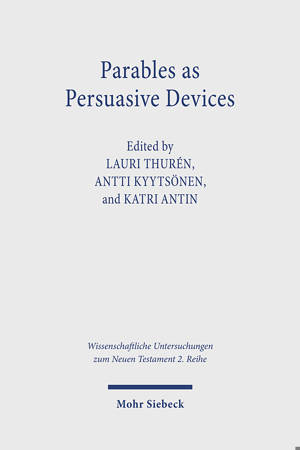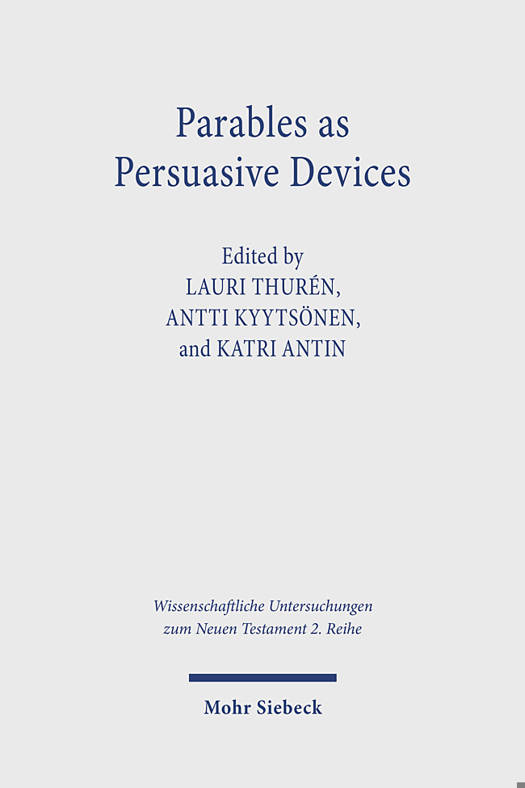
- Afhalen na 1 uur in een winkel met voorraad
- Gratis thuislevering in België vanaf € 30
- Ruim aanbod met 7 miljoen producten
- Afhalen na 1 uur in een winkel met voorraad
- Gratis thuislevering in België vanaf € 30
- Ruim aanbod met 7 miljoen producten
Zoeken
Parables as Persuasive Devices
Towards a New Era in Parable Research
€ 115,95
+ 231 punten
Omschrijving
This volume heralds a new era in the study of Jesus's parables, emphasizing the need to focus on the parables' function within their literary context. The overall theme of the collection proposes that in their original setting, the parables primarily served as persuasive devices. By applying modern argumentation analysis and examining Jesus's parables within their broader Early Jewish and Hellenistic milieu, it becomes evident that these stories were not merely told to disseminate theological or historical information. Rather, they functioned as tools for persuasion, aimed at engaging the audience, including potential antagonists. The parables' impact does not rest solely on the speaker's authority, but rather on the interactive nature of the narratives. This effect is achieved by appealing to the audience's reason while simultaneously engaging their emotions and imagination.
Specificaties
Betrokkenen
- Uitgeverij:
Inhoud
- Aantal bladzijden:
- 380
- Taal:
- Engels
- Reeks:
Eigenschappen
- Productcode (EAN):
- 9783161642449
- Verschijningsdatum:
- 31/05/2025
- Uitvoering:
- Paperback
- Formaat:
- Trade paperback (VS)
- Afmetingen:
- 155 mm x 231 mm
- Gewicht:
- 231 g

Alleen bij Standaard Boekhandel
+ 231 punten op je klantenkaart van Standaard Boekhandel
Beoordelingen
We publiceren alleen reviews die voldoen aan de voorwaarden voor reviews. Bekijk onze voorwaarden voor reviews.










